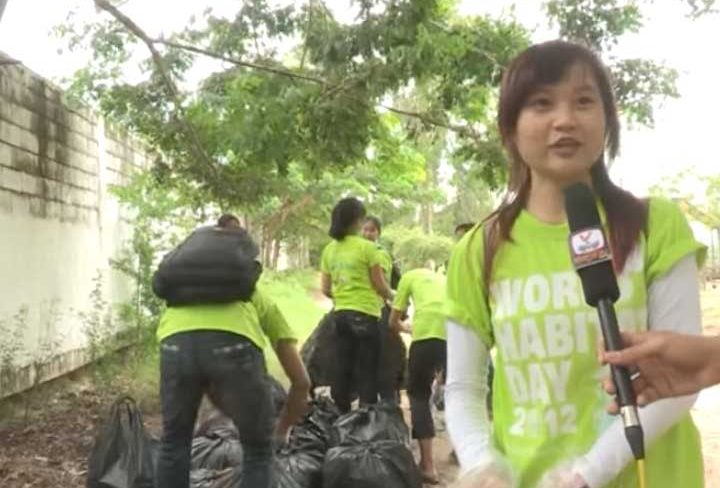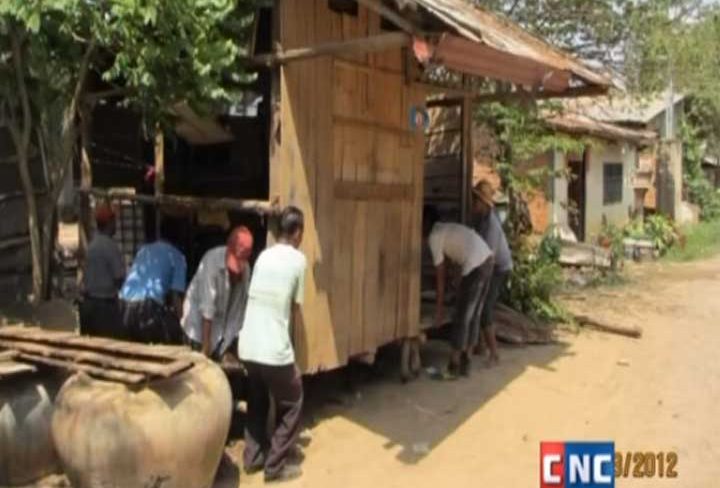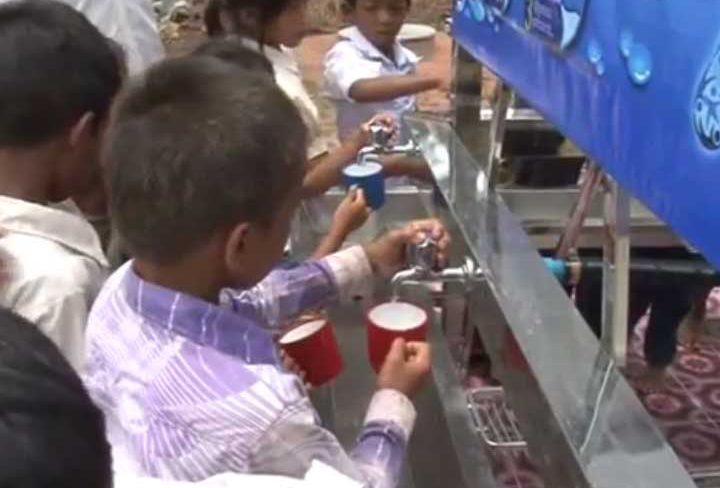
Midterm Evaluation of CCT January 2013-December 2015
 As the second year of Chapadem Chivet Thmey (New Start, New Life) Project reached its midpoint, Habitat for Humanity Cambodia, in partnership with freelance consultant Pou Sovann, conducted a mid-term evaluation in order to review achievements towards the approved project indicators.
As the second year of Chapadem Chivet Thmey (New Start, New Life) Project reached its midpoint, Habitat for Humanity Cambodia, in partnership with freelance consultant Pou Sovann, conducted a mid-term evaluation in order to review achievements towards the approved project indicators.
The project was designed to improve the physical security and living conditions of people living with HIV/AIDS, as well as orphans and children affected by HIV/AIDS, to raise awareness on HIV/AIDS prevention and discrimination, to increase beneficiaries’ aspirations for a better future, and to increase their livelihood opportunities.
The evaluation aimed to assess the relevance of project intervention to the needs of the beneficiaries, to evaluate the effectiveness and efficiency of the implementation, to measure initial improvements and significant changes as an effect of project interventions on the beneficiaries, and to document good practices and lessons with regards to project start-up. Similarly, it aimed at provide recommendations for improvements to be implemented over the remaining year of the project, partnership building, and recommendations for the succeeding phases of the project. Both quantitative and qualitative methods have been used during the evaluation, such as a household survey, key informant interviews, focus group discussions, most significant change evaluation, house visits and desk review of previous reports and documentations.
In terms of improving the physical security and living condition of people living with HIV/AIDS, out of the 47 (of the 77 target families), 97 percent declared they feel protected and depression or stress have gone down significantly and CD4 count examined to have increased in the last six months; 59.6 of the interviewed home partners now spend less in care and treatment for opportunity diseases, and 19 percent have no incurred additional expenses. In terms of raising awareness on HIV/AIDS for prevention and decrease of discrimination, 98 percent of the respondents show good to fair hygiene practices and there has been zero anti-retroviral treatment dropout. In regards to the increase in beneficiaries’ aspirations for a better future, some interviewed home partners demonstrated capacity to lead their lives through improved planning, some demonstrated limited change at this stage of the project but will be continually monitored by both Habitat for Humanity Cambodia and partner organization Maryknoll. Lastly, in terms of increasing beneficiary livelihood, 95.7 percent of the 47 interviewed home partners valued education highly and believed that they have the capacity to support their children’s schooling; 78.7 percent demonstrated application of skills learned to improve their livelihoods, contributing to increased income and savings.
“The evaluation results will serve as a report to TowerBrook who generously funded the three years of the project through Habitat for Humanity Great Britain, of the progress of the project implementation. The project team, together with Maryknoll, thoroughly considers the results of this recent evaluation as feedback from the community and other stakeholders on our work, which will allow improvements in the project design and implementation in the final year,” said Chhouern Chhunna, Area Program Manager, Phnom Penh of Habitat for Humanity Cambodia.



